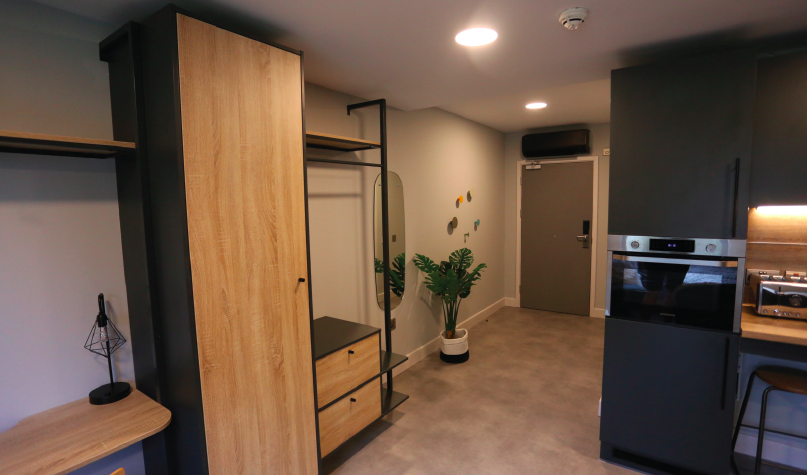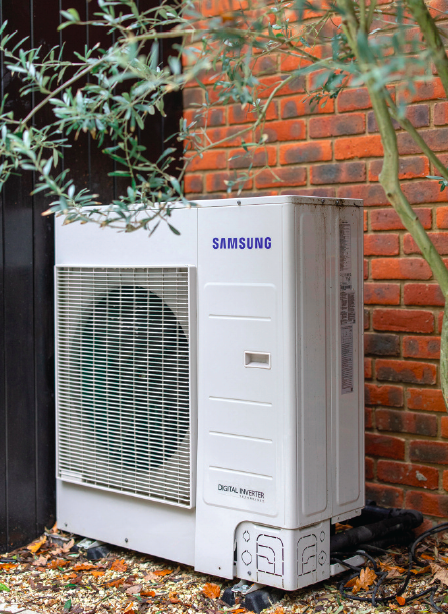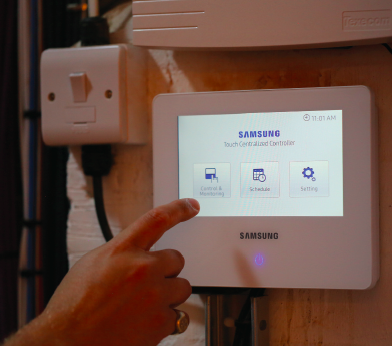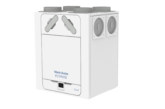
Charles Mcalpine, climate solutions expert and Managing Director EU of HiiLIFE, a bespoke technology provider for the construction sector, explains what home heating systems property developers should install to maximise efficiency.
As energy costs and environmental concerns continue to rise, housebuilders find themselves at the forefront of increasing our energy efficiency. One of the most impactful ways housebuilders and architects can contribute to a sustainable future is by integrating advanced heat pump systems and smart control technologies into their properties.
These solutions not only reduce energy consumption, but also offer residents a more comfortable living experience. With the cost of energy showing no sign of slowing down, it is crucial for residential developments to acknowledge the importance of incorporating these systems. Charles Mcalpine, climate solutions expert and Managing Director EU of HiiLIFE explains more:
“The heat pump has been a game-changing solution for energy-efficient heating and cooling. Unlike traditional boilers, heat pumps work by transferring energy in the form of heat from one place to another. Heat pumps are more efficient than traditional heating systems because they use electricity to pump refrigerant around a circuit instead of burning fuels, such as gas, to heat water.
There are two main types of heat pumps: air-source and ground-source. An air-source heat pump transfers energy from the outside air into the home, even in colder temperatures. In contrast, groundsource heat pumps transfer energy between the ground and a building. Ground-source offer developers energy efficiency and more consistent bills due to the stable ground temperatures they transfer energy from, but installation costs can be high. I’d say air-source pumps are the most cost-effective option for many properties. While ground-source pumps offer a higher level of energy efficiency, the installation requirements are not suitable for all properties and these also come at significant expense.
Installing heat pumps in property developments offer both developers and potential buyers a variety of benefits. Compared to traditional heating systems, heat pumps produce fewer greenhouse gas emissions, contributing to a more sustainable development while also helping developers meet increasingly strict environmental regulations. Energy-efficient properties are becoming increasingly attractive to buyers and renters, who are mindful of energy costs and the environment.
While heat pumps offer energy efficiency, integrating smart control systems in developments can increase these benefits even further. Smart thermostats allow for precise temperature control, ensuring that heat is only delivered when and where it is needed. Many systems are equipped with algorithms that can adapt to household behaviours, automatically adjusting heating schedules for when residents are typically home or away. For property developers, these advantages can translate to residents benefiting from the long-term value of lower energy bills. It also demonstrates to environmentally conscious buyers how the properties in question are prepared for the future.
Smart home systems also offer remote access control, allowing residents to adjust heating elements while away via mobile applications. Not only does this offer convenience, it also enhances energy efficiency by allowing users to manage their property’s energy use anywhere, anytime. Smart home systems can also provide energy usage insights, allowing people to see data relating to their energy expenditure. These insights often lead to better decision-making, encouraging more energy-conscious behaviours. For developers, providing homes with smart systems can enhance a property’s value by offering buyers the tools and data to make their home more sustainable and cost-effective.
Perhaps the most standout feature of smart heating systems is zoning capability. Zoning allows residents to heat different areas of a home independently so one can consider the usage, location, and occupancy of each space. Integrating this innovative feature into the build offers a competitive edge in the market, thanks to the attractiveness of personalisation options and increased efficiency as less energy is wasted on heating the entire home.
In summary, future-proofing home heating systems with heat pumps and smart home controls has a whole host of commercial benefits for property developers. Not only do they align with modern sustainability trends and home designs, they also reduce energy waste and lower utility costs for buyers and residents. In today’s competitive market where sustainability and long-term value is a priority for consumers, energy efficient properties are increasingly attractive investments. Housebuilders who embrace and implement these innovations will be well-positioned to meet demand and stand out to buyers and residents in the increasingly crowded property landscape.”











